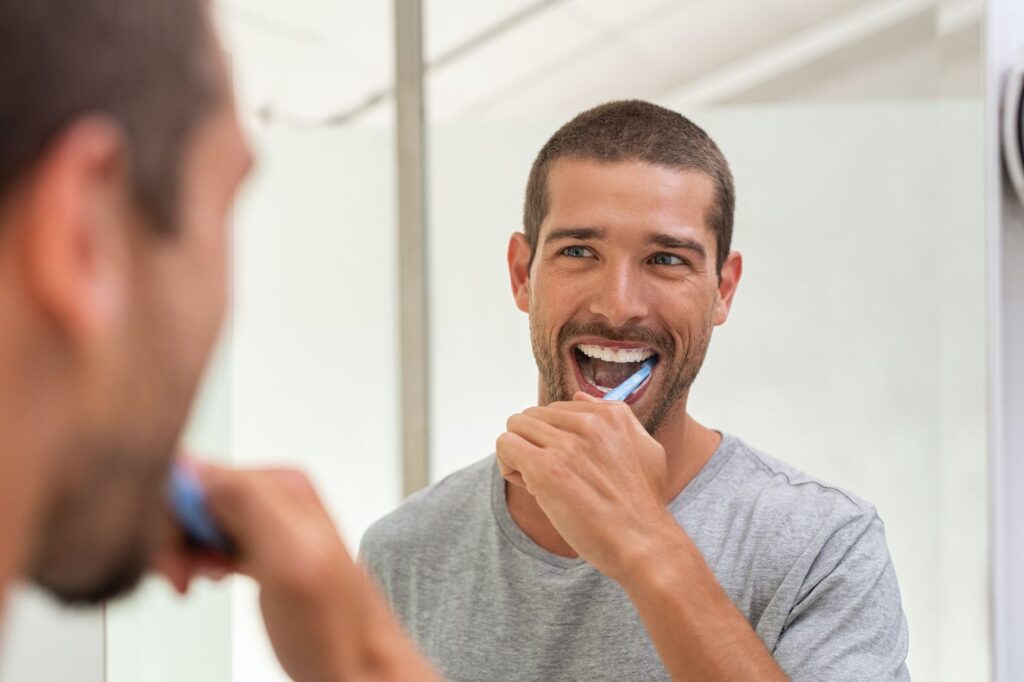You brush your teeth at least twice a day and floss on a daily basis as part of a good oral hygiene regimen. In order to properly complete this routine, you need the right tools. If you run low on toothpaste or floss, you buy replacements. But did you know you also need to replace your toothbrush every so often?
Over time, your toothbrush will lose its ability to clean your teeth as well as you need it to. So you must buy a new toothbrush to ensure your mouth gets effectively clean and stays healthy. Read on to learn more about the importance of replacing an old toothbrush regularly.

What Happens to a Toothbrush Over Time?
The ideal manual toothbrush has firm bristles attached to a plastic handle which you use to scrub plaque and other residues off of your teeth. The more you use it though, the more the durable bristles will eventually fray and wear down. This makes the brush less capable of cleaning your smile properly.
The toothbrush also collects germs over time from both your mouth and the surrounding area. You rinse your toothbrush before and after using it during your oral hygiene routine. But exposure will still leave the brush vulnerable, and it will deteriorate over several weeks.
Do not store the toothbrush in a closed container, however. This encourages mold and bacteria breeding which will worsen the issue. Instead, you must buy a new toothbrush every few months.
How Long Do Toothbrushes Last?
The average dental patient will need to buy a new traditional manual toothbrush every three to four months. After this time, the bristles of the toothbrush will fray and not clean your teeth as well as required.
If you notice bristles starting to wear down before this time, you should replace the toothbrush sooner. Electric toothbrushes have shorter bristles than manual ones and will therefore need more frequent replacements of its head. Dentists recommend replacing these every 12 weeks or so.
Certain scenarios might require you to obtain a new toothbrush outside of the usual wear-and-tear reason. If you or someone you live with contracts a contagious illness, you should get rid of all toothbrushes in the home to reduce the spread of diseases. You should also throw away a toothbrush if you know someone has borrowed or used it.
What If I Use an Old Toothbrush?
Have you forgotten to replace your toothbrush? Do you think getting rid of an old toothbrush is not a big deal? If you use a worn toothbrush, you might leave plaque and bacteria lingering on your smile that can eat away at your dental structure.
This can put you at risk of cavities and other dental dangers, majorly affecting your oral health. While a dentist can treat many dental problems, you should protect your dental health as much as you can with proper oral hygiene and other preventative dental care. This means using appropriate tools like new toothbrushes.
